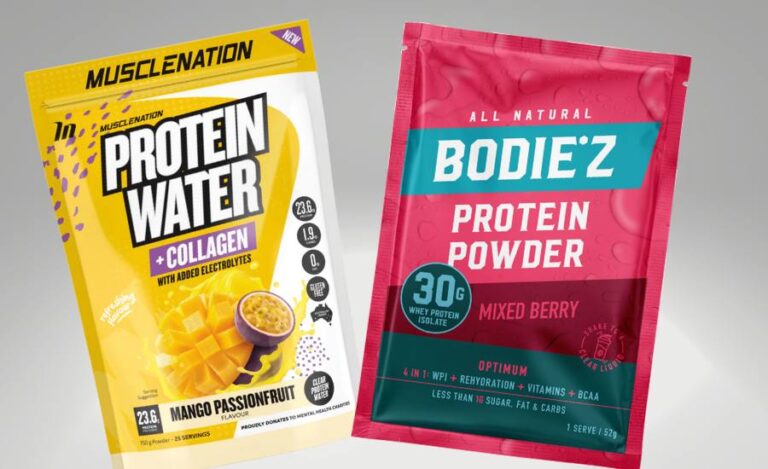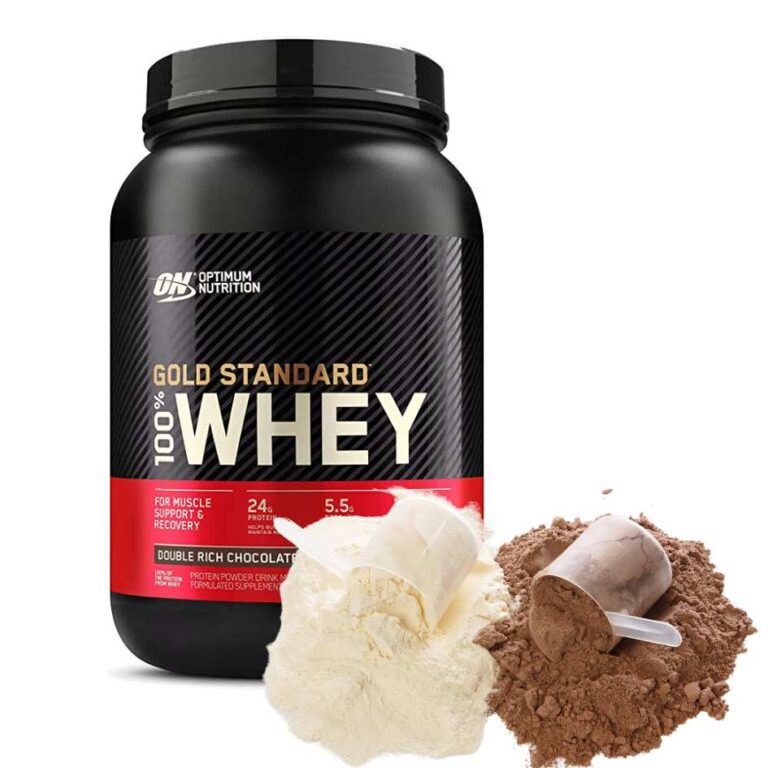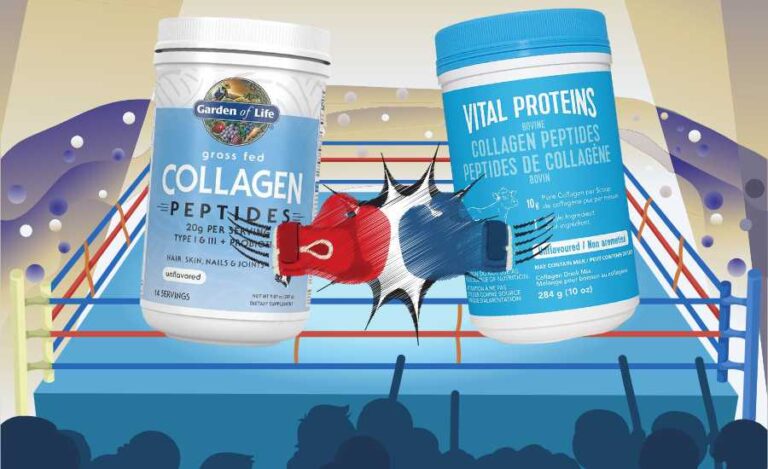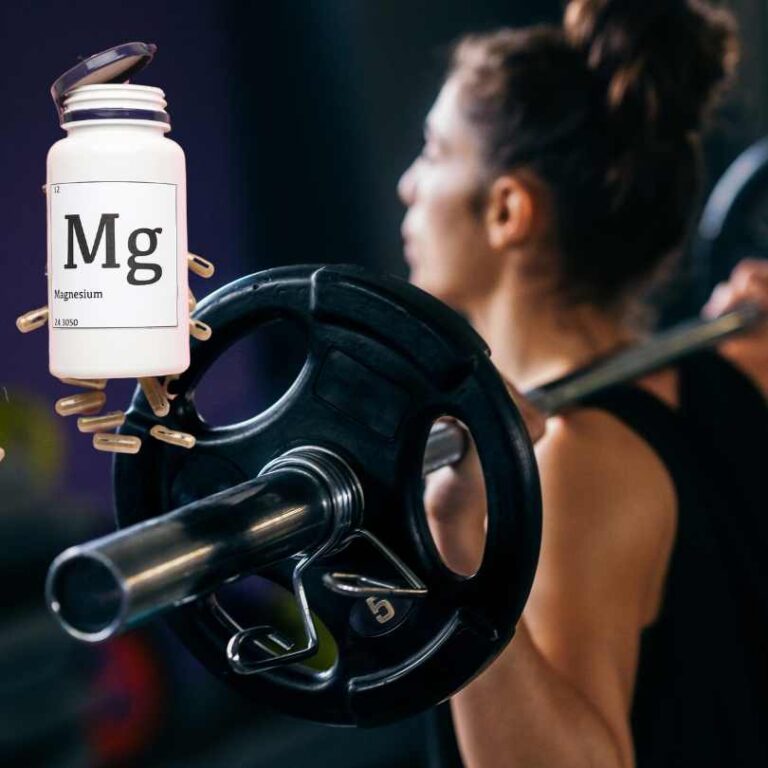BCAA vs whey protein, so what is the key difference between the two, and do you need to take both of them for optimal results or just choose one? This is a question you might ask when starting on your strength training journey or if you are considering adding some supplements to your healthy fitness lifestyle.
Table of Contents
BCAA vs Whey Protein: What is the purpose of each?
BCAA and whey protein: why do people take them in supplement form?
Should you take BCAA or whey protein?
Do you need BCAA if you already have a protein powder that contains them?
Can you have too much BCAAs or whey protein and what are the side effects?
How many calories are in BCAA vs whey protein powder?
BCAA vs whey protein: Is there the best time to take one or the other?
BCAA vs whey protein: which one will get you more bang for your buck?
1. BCAA vs Whey Protein: What is the purpose of each?
BCAA purpose.
BCAAs have a very important role to play in protein metabolism, neural function, and insulin regulation. There are 3 BCAAs (Branched Chain Amino Acids) and they are Isoleucine, Leucine, and Valine.
Leucine; helps preserve lean mass, increases insulin levels which helps regulate blood sugar, and activates muscle growth.
Isoleucine; helps with energy production, assists the immune system during recovery, and preserves protein breakdown.
Valine; supports the other two.
Whey protein purpose.
The purpose of whey protein supplements is to cover all bases, it’s a complete or whole protein rather than just components of it such as BCAAs. Whey protein consists of 20 essential and non-essential amino acids. Non-essential means your body can produce them on its own, so it’s not essential to consume them in your diet. While essential means the body has to get them from food or supplements as it can’t produce them on its own, but needs them.
9 out of 20 amino acids in protein are essential and you need to get it from food. The thing is in order for the body to produce the 11 non-essential amino acids we actually need to consume the other 9 essential amino acids. So they all work together.
The 3 branched-chain amino acids Leucine, Isoleucine, and Valine are different in chemical structure to the other 6 essential amino acids that’s why they are labeled “branched”, they go directly into the bloodstream bypassing the liver.
The main purpose of branched-chain amino acid supplements form is to reduce skeletal muscle breakdown. And muscle breakdown is the opposite of muscle building.
Human body needs adequate nutrition to support muscle building and athletic performance.
2. BCAA and whey protein: why do people take them in supplement form?
BCAAs are found in whole foods like meat, poultry, eggs, and dairy as well as some plant foods. If your diet is high in daily protein intake consistently the chances are you are already consuming enough of these essential amino acids as well as the non-essential. This means you don’t need to supplement and spend your money on additional supplementation such as BCAAs.
So why do people take additional BCAAs in the form of dietary supplements?
It could be for a few reasons.
Calorie deficit for fat loss.
Most common is being in a caloric deficit in order to shred some body fat while trying to build muscles. Often calorie deficit for weight loss means that we may miss out on some essential nutrients by cutting down on food groups so we aren’t getting enough of it from whole food sources. When being on a strict low-calorie diet we may often not get enough protein and therefore may need to supplement our diet.
Low protein diet, not a big eater.
People who don’t consume a lot of meat, dairy products, poultry or eggs, for example, someone who consumes less than 1.5 grams of protein per kilogram of body weight in macros daily, might need help from additional supplementation such as whey protein or BCAAs. If you don’t eat protein with each meal of the day every day, there is a good chance you are below that number, which means you may not be getting enough of the BCAAs especially if muscle repair is important to you.
Plant-based or vegetarian diet.
Vegans or vegetarians or people who just don’t eat a lot of animal-derived protein may lack enough BCAAs especially if they are active in the gym and trying to build muscles. It is very difficult to get over 100g of protein in macros daily for someone on a vegetarian diet unless they are very knowledgeable about nutrition and how to get plenty of protein from plant foods.
Getting enough protein on a plant-based diet is definitely possible, just more challenging since they have fewer protein sources to choose from. Even eating nuts, legumes and tofu may not give you as much protein as you think it does unless you know how to track your macros.
The bottom line is if you are eating enough protein from food or supplementing with good quality whey protein powder then you don’t need to buy BCAAs. Your body will get enough.
3. Should you take BCAA or whey protein?
This will depend on your fitness goals and your lifestyle. I coach different types of clients and I will break down my supplement recommendation based on their goals for you to give you a clearer picture of why I recommend what I do to each group.
Group 1;
Clients who aim to tone up and improve their overall fitness and strength, while gradually reducing their caloric intake. Their main aim is to reduce their body fat percentage over a period of 6-12 months.
I would then suggest some whey protein powder or protein water containing some BCCAs, but no additional BCAA supplements. Unless they already eat a high-protein diet.
Why: because if they are not reducing their calories drastically it means they will have a more balanced diet that includes a variety of nutrients from whole foods with only a little supplementation of protein to help them hit their protein macros daily.
Group 2;
Clients who are on a very strict diet and also aiming for maximum muscle gain during a shred phase, this is usually a scenario for either my bodybuilding competition clients, endurance athletes, or those who are getting ready for a fitness photoshoot and need to look as lean and muscular as possible. This group will be encouraged to add whey protein powder with a good amount of BCAAs already included or additional BCAAs if that isn’t the case.
I would also suggest taking Creatine as well as some other important supplements such as calcium, B complex, and magnesium.
Why: because while being on a very low-calorie diet while expending a lot of energy on the training they will need all the help they can get to stay balanced and healthy. During my competing days, I definitely upped my supplementation intake from my normal day-to-day healthy lifestyle. Only for those periods of time, to ensure I wouldn’t become deficient in anything.
From this, you can draw that the lower your calories are the more supplementation your body might need to stay nourished and to continue building lean muscle mass. Cutting calories often means cutting some nutrients or not getting enough of some essential amino acids and other vitamins.
The stricter you are with your diet the more help you might need from supplements and vitamins so you don’t become deficient and unwell. This is why athletes take a lot of various supplements especially if they are in a cutting phase (fat loss).
4. Do you need BCAA if you already have a protein powder that contains them?
Whey protein already contains BCAAs, usually around 20 % or around 5.5g per serving. Getting a protein powder with a good amount of BCAAs is the best option if you don’t want to buy multiple types of supplements.
If your protein doesn’t contain enough grams of BCAAs then you should either look at different protein powders or add some extra BCAA supplementation into your diet. You can usually find this type of information on the back of the packet and see the Amino Acid Profile.
Ideally, you want no less than 1.5g of Isoleucine, 3g of Leucine, and 0.5g of valine per serving. If your protein powder doesn’t contain that much then it won’t trigger muscle protein synthesis, it means it’s under-dosed and not really going to help promote muscle recovery.
Make sure to check this on the back of your protein powder. It should have this information available if the company is transparent and contains all the right things that it should.
5. Can you have too many BCAA or whey protein and what are the side effects?
There are generally no side effects in consuming too many BCAAs because the body will simply turn excess into waste, which means taking too much is simply an expensive waist, but not harmful to your body.
However, whey protein on the other side should be taken in moderation, too much protein in general can cause digestion issues and even kidney damage. Most dietitians will recommend not going over 1.5 grams of protein for an active person or 2 grams of protein maximums for someone who lifts heavy weights frequently and consistently like a bodybuilder or a cross-fit athlete.
That doesn’t just relate to protein in powder form, it’s actually a recommendation for total protein macros from whole foods and supplementation.
6. How many calories are in BCAA vs whey protein powder?
BCAAs have a very minimal amount of calories and mostly don’t contribute to total daily caloric intake, while whey protein powder can range anywhere between 90-180 calories per serving as it is a complete protein and provided a lot more nutrition than just BCAAs alone. Complete whey protein powder can also contribute to increased energy levels due to higher calories which could be helpful during your resistance training days or as a post-workout recovery.
7. BCAA vs whey protein: Is there the best time to take one or the other?
The most ideal time to take BCAAs or whey protein is shortly after your training session, but there is no real hard evidence that taking them at other times of the day could be less beneficial. So don’t stress if you forgot your shaker at home, it’s not going to make or break your muscles if you don’t have a protein shake immediately after the training session every single time.
However, remember to try your best and consistently aim to have around 25-35g of protein soon after training whether it’s in the form of food or whey protein powder.
The rule of thumb is; if you just did an intense session that lasted more than 45 minutes and involved some heavy weights it would be optimal to have a high protein meal right after, or if that isn’t possible this is where a whey protein supplement could come in handy. This is why I love having a few protein water sachets in my car, just in case.
Protein is very important after training to reduce muscle damage that happens during training. New muscle tissue starts being built at rest when you complete your training session and during sleep. This is why fitness enthusiasts prioritise sleep so much and even turn to other supplements like magnesium to help them with not only the reduction of muscle cramps but also good quality rest at night.
8. BCAA vs whey protein: which one will get you more bang for your buck?
Even though whey protein powder is usually more expensive than BCAAs on its own, whey protein powder undoubtedly will give you more as it’s complete with all 20 essential and non-essential amino acids. It will also contribute to your total protein macros for the day just like whole foods would. BCAA will not do that since it’s only 3 out of 20 amino acids. In my personal opinion as a fitness coach, I will always opt for whey protein supplement that contains a good amount of BCAAs so I can cover all my bases and not have to take additional supplements. In the long run, I know it would save money.
I would recommend relying on protein powder a little more when balanced meals are not available or as a booster to your daily protein intake.
A good example would be a protein smoothie for breakfast, especially for those on the go or in too much of a rush to prepare breakfast or right after a workout. And aim to eat more whole foods throughout the rest of the day for optimal digestion and balance in nutrition.





